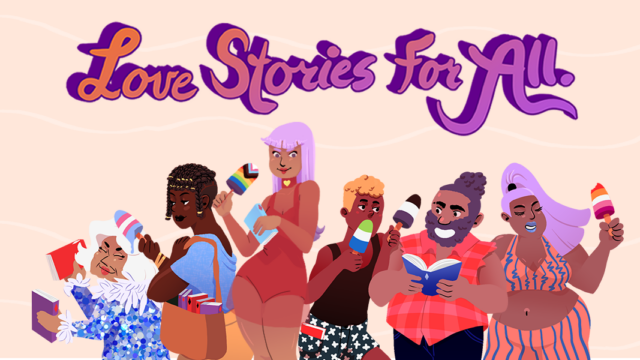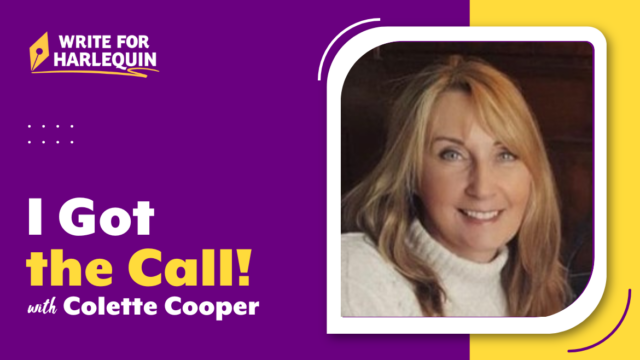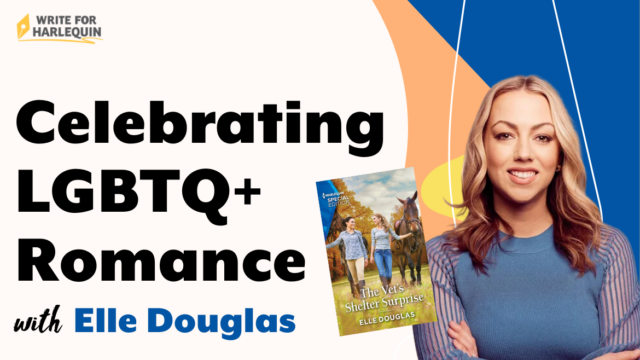
Last month, we met author LaQuette and her editor, Charles Griemsman, as they reflected on how they first met. This week, we join them for a Q&A about tropes, setting, putting yourself out there as an author, and much more.
Charles Griemsman: Earlier this year, we had lunch together at Junior’s, an iconic Brooklyn restaurant that makes an appearance in your Desire debut, A Very Intimate Takeover. How important is setting for you in telling a story?
LaQuette: Very important. I use setting as if it’s another protagonist in the story, especially with a place like Brooklyn that has such distinctive cultures and customs. I wanted people to understand exactly what world I was introducing them to. Brooklyn informs the way the characters dress, their speech, and how they display luxury and wealth. Without a detailed view of Brooklyn, the story and the characters make little sense.
CM: You really bring Brooklyn to the page. And you’ve written cowboy romances. Is it hard to switch it up?
LaQuette: Not at all. I spent most of my life as a concrete princess in Brooklyn, but my maternal grandparents, who were very southern, lived with us. They raised us with a lot of the values, the language, and ways that come from southern culture. So, switching from a cowboy romance to an upscale city romance is just as simple as me going down to Georgia, Florida or Texas to visit my extended family and then coming back home to Brooklyn.
CM: In real life (and in romance novels), there can be this city-country divide, like it’s two different worlds. What do you think a book set in the city offers readers living in the country, and vice versa? I mean, I’m about as urban as you get, but I love romances set on horse ranches. Maybe it’s the escape from my cramped Brooklyn apartment? 😊
LaQuette: What I enjoy most about country living is the slower pace. As a fellow Brooklynite, you know in the city, we’re always in a rush. That’s not necessarily a bad thing, but it can cause you to miss important things if your only focus is moving forward. Country living can give you the opportunity to slow things down a bit and appreciate the world around you. In my Brooklyn-based novels, there’s always something to do and somewhere to go because that’s city life. At the center of these stories, there’s always a theme of work and productivity. There’s always a deadline to meet and events happen very quickly. It keeps the readers on their toes, making them anticipate what’s going to happen next. In my books that are placed in more rural settings, everything is much more laid-back so the reader and the characters can sort of soak it all in slowly. The exception to that rule is writing a Harlequin Desire set in a rural area. There’s not an abundance of time to leisurely allow the story to unfold in a 50,000 word book.
CM: You and I have talked about not seeing yourself in Harlequin books and worrying about connecting with readers. How do you overcome those concerns as a writer?
LaQuette: Well, first, I had the good fortune of being acquired by a wonderful and perceptive editor who pulls me down from the ledge by reminding me how universal my story is. Craft-wise, my characters code-switch a lot, meaning they frequently and seamlessly slip between standardized English to AAVE (African-American Vernacular English). I know everyone may not be fluent in AAVE, but I strategically use context clues and emotional expression to help non-AAVE language speakers understand the meaning of whatever words or phrases that might be unfamiliar to them.
CM: Romance is a universal language, isn’t it?
LaQuette: It is. Love, whether it’s romantic love or some other variation thereof, is something most people inherently understand. It’s the thing that crosses all the social barriers we’ve erected to distance ourselves and prove how different we are. To love and be loved is human. It’s why I don’t need to have lived during the Regency to enjoy a book set in that time. It’s why I don’t have to know anything about how the corporate world works to enjoy an office romance. The dressing of the package isn’t important. It’s what’s at the core. The love shared between human beings—that’s what allows me to understand and enjoy a story no matter who writes it and no matter what background the characters come from.
CM: When a new writer submits work, it’s brave—they’re putting themselves out there. What do you say to writers who might have fear about submitting? What should they do to overcome their hesitation?
LaQuette: This is a line from A Very Intimate Takeover, but it’s also a rule I try to live by. “Scared money, don’t make no money.” This means that if you’re too afraid to try, failure is guaranteed. Does that mean throw caution to the wind? No. It means you attempt to gather enough information by talking to people in the industry. Reach out to any writer-friends you might be acquainted with to get their perspectives on things. Join writing organizations so you learn the standards of the industry. The idea is to take a calculated, informed risk. Furthermore, being afraid is normal. It means you’re leveling up and stepping into the unknown. Ultimately, if being traditionally published is something you desire, as difficult as it can be, if you really want it, the only way you can get it is by submitting and putting yourself out there.
CM: How do you balance telling an authentic story with specific commercial needs of an imprint, like the need to have layered romantic tropes that will sell in the marketplace? Is this a balancing act? Do you feel like compromises are involved?
LaQuette: It absolutely can be a balancing act. For instance, the third book in my Devereaux Inc. series involves an unexpected pregnancy for an unmarried Black couple. Readers love unexpected pregnancy stories, so I would inevitably have to write one. However, as a Black writer penning Black characters, there’s more for me to consider than just what’s on trend in the industry. Tropes such as this one may be perfectly fine when your characters are white. Those same tropes don’t always work as well when your characters are Black. For a white woman in this situation, the baby is considered a surprise, something unexpected, but lovingly desired. Black women aren’t given the same treatment in this scenario.
As a Black woman, I am very aware of the negative stereotypes that society has placed upon me. One of which being if I were to have a baby out of wedlock, that would somehow make me irresponsible and unprepared to have a child, and instantly frame my child as being an unwanted, fatherless accident. That’s not a stereotype I care to perpetuate because it’s harmful, and it lacks the necessary nuance to address some of the systematic issues that have been assigned to Black people by society at large that may contribute to real-life scenarios such as this. That being said, this trope called for very careful handling where I wasn’t painting the heroine or hero in a negative light.
CM: Do you have any favorite romantic tropes for your own writing? In books you read?
LaQuette: Forced proximity. You will find it in every one of my books. There will always be some reason the protagonists have to spend a large amount of time together. It’s a cheat when it comes to the attraction development. By being forced to be together, the sexual tension in the story automatically rises. But even still, I don’t care. I adore it.
CM: Do you have any tips for incorporating tropes in a story? Do you start with a trope and write a book around that? Or do you start with characters or plot and then make sure it has tropes? What is your process?
LaQuette: I don’t think I have a defined process, so to speak. Conceptualization can happen in a number of ways. For instance, many of my stories start with, “I wonder what would happen if…” My story concept becomes the result of me trying to answer that question. Or an editor could ask for a certain type of story and I will begin crafting a concept to execute what they’re asking for.
That’s what happened with A Very Intimate Takeover. You asked me for a romance featuring a prominent Black family from Brooklyn where the business would impact the relationship. To me, I interpreted that as Black Dynasty set in Brooklyn, so I had to think about what was a common theme in that show that I could use as the foundation.
As much as the Carringtons and Colbys loved and hated each other, more than anything, they were always in competition. It was a never-ending game of one-upmanship. Someone was always trying to steal Denver-Carrington from Blake. Keeping that in mind, I knew that at the heart of this story, someone from within the family had to try to steal Devereaux Inc. away from its rightful owners. Who better to do that than a bitter, estranged relative?
CM: You and I met after you’d already published with other houses. Would you talk about the journey to publishing your first book? Based on that experience what tips do you have for aspiring writers?
LaQuette: My first published book was self-published when I had absolutely no knowledge of how to independently publish. As you can imagine, it didn’t go very well. My advice on that front is don’t be like me. Be better than me and learn what you’re doing first. That could mean taking a couple of classes or workshops focusing on the craft and business of romance writing or joining writer groups to get the benefit of advice from experienced writers. Either way, learn your industry before you just throw a book up on an e-tailer platform.
Now, what led to me writing and then publishing that story was that I’d just finished my Master of Arts degree where I’d spent a lot of time writing about and analyzing other people’s work. I was essentially writing what I was told to write and not what I wanted to write. So, when I finished my degree, I needed to do something creative, and that story was the result.
CM: But then how did your publishing process evolve from that first e-book? And is it challenging being both self-published and traditionally published—a “hybrid” author?
LaQuette: An author-friend invited me to submit to the small press she was published with. I did, and my story was acquired, leading to what would go on to become a five-book series titled the Queens of Kings. After that, I submitted to a slightly larger press, and once they made me an offer, I was able to use that offer to help me get my agent, Latoya Smith. Latoya is fabulous at what she does and she used her skills to get me more lucrative contracts, one of those contracts being with Harlequin Desire.
It can be very challenging to be hybrid. Plotting out a writing schedule can be nearly impossible because there’s always something to juggle. I do, however, enjoy doing both. There are certain stories that I know won’t work in the traditional publishing market. If that’s the case, I write the story and publish it myself. The same is true of my traditional work. Those stories wouldn’t have worked in the indie space. They were perfect for traditional audiences, though. Having that mindset allows me to have the best of both worlds.
CM: Of course, since we’re celebrating the debut of your Brooklyn-based Devereaux Inc. series this month in Harlequin Desire, I have to circle back to the New York borough you and I both love. What are some of your favorite Brooklyn spots?
LaQuette: My goodness! First off is Original Napoli’s Pizza, aka the pizza joint or pizza spot, on Sutter Avenue and Crescent Street in East New York. They have the best slice in all of Brooklyn, as far as I’m concerned. Whenever I’m in town, I make it my business to stop there just to enjoy a slice or two. Their zeppole ain’t bad either, just saying. 🤷🏾♀️️
Flatbush is another favorite of mine. It’s an area heavily populated by folks from the various parts of the Caribbean. I went to Erasmus Hall High School, which is right on Flatbush Avenue. Witnessing the Caribbean culture through my classmates and friends, and the wonderful cuisine, was amazing. I actually had an ex-boyfriend whose mother made the best Escovitch fish I’ve ever tasted. When we broke up, I was more upset over losing access to her Escovitch than I was about ending the relationship. It was that good. 😋😉😂 I also loved attending the Labor Day Parade where Caribbean people celebrate the various countries they hail from while dressing up in cultural garb and dancing to calypso and dancehall reggae music from one end of Eastern Parkway to the other. It gave me such an appreciation for Caribbean culture and people that has stayed with me all my life.
Last, the shopping. For me, the hotspots were Kings Plaza, Pitkin Avenue and City Line. Kings Plaza was the fancy spot where you could get popular name-brand labels. Pitkin Ave and City Line were in Brownsville and East New York, respectively, or more lovingly referred to as the ‘hood. You could get what you needed on the cheap in either of those shopping areas. And yes, I still go to all three places. You can take the girl outta Brooklyn, but you can never take Brooklyn outta the girl. Brooklyn is always in the house.



